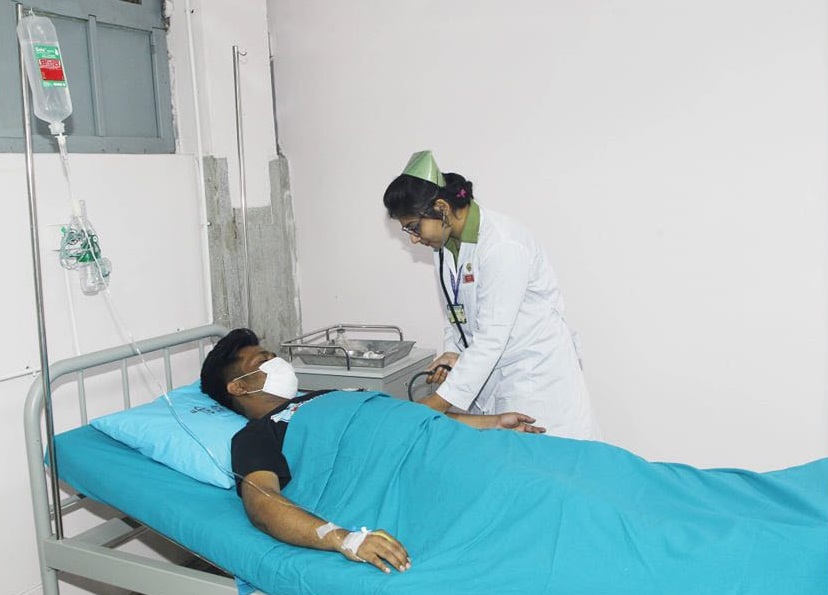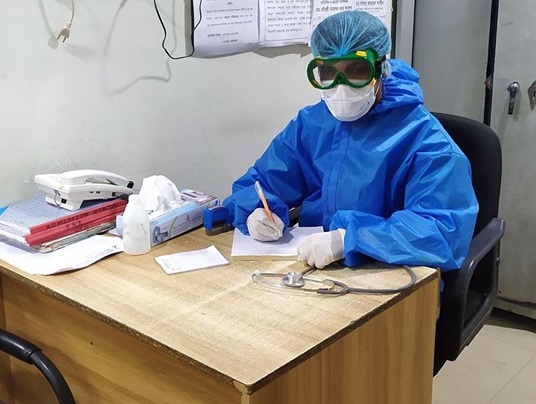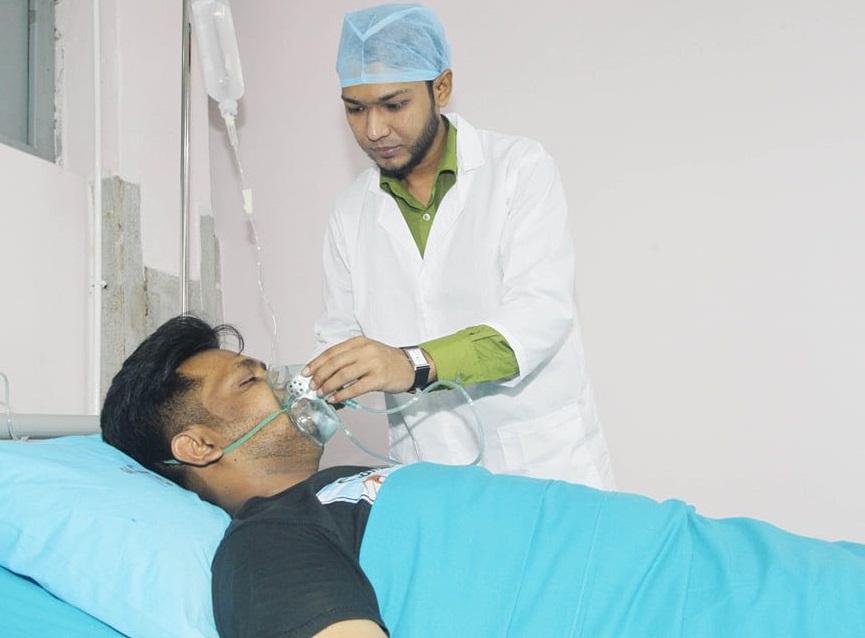Bangladeshi nurses serve frontline amid drawbacks
More than 500 nurses countrywide contracted COVID-19 infection while attending patients, says rights body- Nayadiganta English Desk
- 13 May 2020, 01:21

Even as Bangladeshi Prime Minister Sheikh Hasina has directed authorities to ensure the safety of health workers, nurses in the country are squirming about getting low wages and long work hours.
Like in other countries, while nurses in Bangladesh have also emerged as frontline combatants to fight the coronavirus or the COVID-19 pandemic, experts believe their low numbers are affecting the country’s health system.
On eve of the International Nurses Day that was observed on Tuesday coinciding the 200th birth anniversary of Florence Nightingale, health workers were demanding further recruitment of nurses, which is much below global standards.
According to the World Health Organization (WHO) data, the country has only 3.06 nurses to provide services to every 10,000 population.
While nearly 50% of the global health workforce reportedly constitutes nurses and midwives, their number is even lesser than doctors in Bangladesh, with just 50,000 of them serving a population of 165 million.
Speaking to Anadolu Iqbal Hosen Sabuj, a nurse at Dhaka Medical College Hospital, the central point of public health services of all government hospitals in Bangladesh, said that as a class-two employee, a nurse earns approximately 30,000 Bangladeshi takas [$352] per month.
“We have no other income sources, unlike doctors who have other options. We have to deal directly with patients including coronavirus infected cases most of the time, more than even doctors,” Sabuj said.
He said that nurses have to spend more time with patients directly than doctors.
“It is even very tough to run our families modestly with this salary to match the rising prices of daily commodities,” he added.

Health workers infected
Parvin, 36, a staff nurse at a remote government health complex in Bangladesh’s southwestern district of Jessore, said that till today five staff members at her hospital have been infected with the coronavirus.
She said that the government has supplied two sets of safety gear called personal protective equipment or PPE to each of them, including some face masks.
Referring to frequent reports in mainstream and social media about the low quality of PPEs and masks, Parvin, said she lives in fear of contracting the virus and thinks about its disastrous consequences on her family. She has two kids, one of them three years old.
“We must serve people whatever risks may arise. But my earnest request to the government is to ensure the quality of all protective medical equipment distributed amongst us,” she said.
Parvin, however, thanked the government for promoting the rank of nurses from class three to class two in the government employment list, which has increased remuneration and other facilities.
Arduous work hours
Parvin lives far from her workplace which requires her to travel more than one hour every day. She usually works eight-hour a day with one weekly off.
But due to the pandemic, the work hours have been increased to 12 hours.
“After 12 hours with patients and then one hour on the road, I have little energy left to care my children," she added.
According to data issued by the Society for Nurses’ Safety and Rights, a local body fighting for the rights, 73,000 nurses are registered in Bangladesh. Out of them, 50,000 are working in government and non-government health services.
“After the first infection of a nurse with the coronavirus in Bangladesh on March 21, the government directed us to stay isolated from our family members. Now we work seven days without a break and then stay in institutional quarantine for the next 14 days,” Sabbir Mahmud Tihan, general secretary of the rights group, told Anadolu Agency.
He said this direction applies to all government and non-government health centers including clinics and hospitals.
“But it could not be implemented properly in some parts of the country due to a lack of facilities and a manpower crisis. We have to randomly work now beyond the roster, staying away from our families for weeks.”
According to the organization, so far 520 nurses have reported the COVID-19 infection.
Describing the nurses as frontline fighters against the coronavirus, Dr. Shahed Pavel, president of local doctors’ rights body the Bangladesh Doctors’ Foundation, hoped that the prime minister’s order to ensure safety will be implemented properly.

Recruit more nurses
He also urged the government to recruit more nurses with more facilities, as just 50,000 nurses were not enough for the country.
The government has recently decided to recruit at least 5,000 nurses along with 2,000 doctors on an emergency basis to fight the pandemic.
Dr. Ayesha Akhter, an assistant director at Health Ministry, said the government has already appointed the recommended medical staff.
“We have already finalized their posting places, and by May 13, all of them will join their duties," Akhter told Anadolu Agency.
While acknowledging that there was some improvement after initial irregularities, Dr. Pavel said it was still off the mark and needed further push.
“The government noted our voices and the prime minister instructed the health directorate and health ministry. Then we observed some improvement. But it’s still not up to the mark," he said. [Source: Anadolu Agency]
Kamruzzaman

